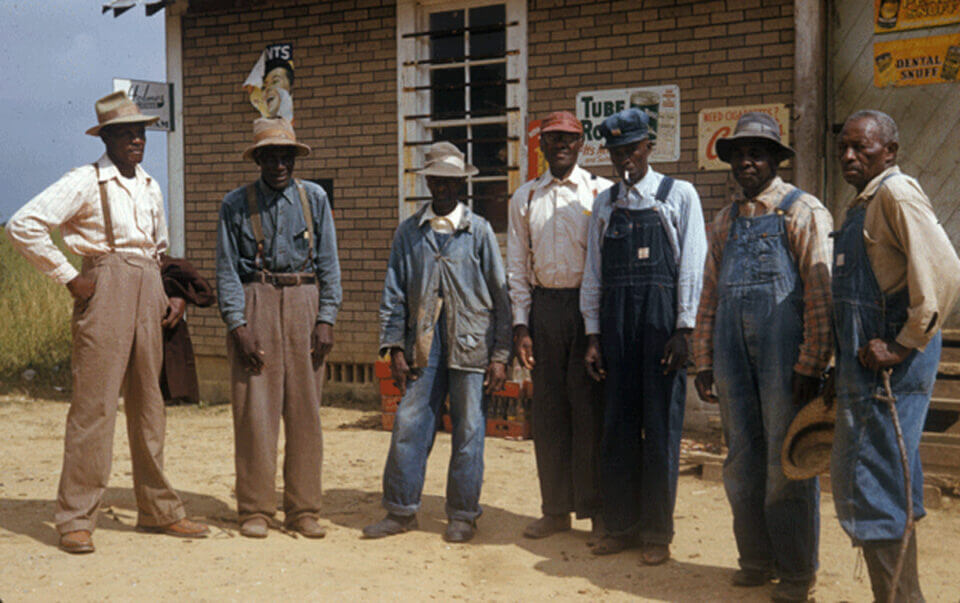
“In later interviews, Buxtun would shrug off the accolades he later received for his whistleblowing. ‘I don’t want to be embarrassed by an oversupply of compliments. I am who I am,’ he would tell bioethicist Carl Elliott in 2017.”
On July 25, 1972, fifty years ago this week, the now-defunct Washington Star newspaper published an Associated Press story under the headline “Syphilis Patients Died Untreated.” This was in reference, of course, to an event that, after it fully entered into public consciousness, would come to be known as the Tuskegee Syphilis Study. It is now frequently listed alongside the internment of Japanese-Americans during the Second World War (as well as smaller numbers of German-Americans and Italian-Americans) and the United States Atomic Energy Commission testing the effects of radiation on unwitting hospital patients and developmentally-disabled children as a preeminent example of 20th century moral failings on the part of the United States federal government. The study, which tracked the progression of untreated syphilis in 399 African Americans living in Macon, County Alabama, was administered from 1932 until the outcry following its being revealed to the public.
The study, thus, had already been in progress for 34 years when, in 1966, a 29-year-old employee of the United States Public Health Service first raised concerns about its ethics. After expressing his unease internally and being exasperated by the lack of interest in his superiors addressing matters, he would later succeed in leaking the details to reporters, culminating in Jean Heller authoring the original July 25th story. This young man was Peter Buxtun, a Jewish immigrant from Prague, a social worker, and a devoted political conservative. As he was described by author Allen Hornblum in Tablet, he is “an arch-conservative and proud Oregon Duck, Buxtun is a lifelong Republican, strong NRA supporter (the owner of several dozen guns), and a collector of medieval weaponry.” As Hornblum continues in that piece, which was written just after the zenith of the Black Lives Matter movement, “[Buxtun] did not need a popular movement or newspaper headlines to tell him what to do.”
Now, to be sure, Buxtun’s particular identity as a political conservative—or, for that matter, any other aspects of his personal biography—is far less important than the simple reality that his whistleblowing brought both an immediate end to the maltreatment of these Alabama sharecroppers, and ignited much-needed public attention to the issue of proper treatment for research subjects more broadly. However, in an era today when, as Hornblum alludes to, the narrative is that it is necessary to be aligned with the various fashionable ideological movements in order to be morally forthright, the particulars of Buxtun’s biography certainly do stand out and warrant at least a moment’s consideration.
Strongly skeptical of political systems that seek to elevate the group over the role of the individual, it is fitting that Buxtun, a forthright single person, would be the one more effectively to bring an end to such unethical practices than any bureaucracy or complex organizational hierarchy could. In fact, it is usually within those very systems that such atrocities take place, systems that, in practice, all too often diminish the role of the individual through disincentivizing dissent. But whether it be Buxtun or Frances Oldham Kelsey—the physician reviewer at the Food and Drug Administration who resisted considerable pressure to authorize thalidomide for widespread use despite known concerns about its side effects—these are the individuals, guided by a strong personal sense of right and wrong, that possessed the fortitude to bring an end to deeply-troubling status quos.
Buxtun’s story also serves as a powerful rejoinder to those who suggest that looking out for ethnic minorities or people who are disadvantaged socio-economically is the exclusive domain of the political left—or to those who believe conservatism is inherently at odds with reforming retrograde or harmful practices. These same individuals, who would likely be just as quick to forget a young Winston Churchill’s advocacy on behalf of improving British prison conditions, neglect to consider that moral forthrightness is hardly the domain of a single political party or ideological faction.
By midday on July 26, 1972, as newspapers nationwide ran their respective stories on Buxtun’s revelations, the condemnations were swift and the outrage complete, quickly dispelling any notions of an American public uninterested in the suffering of the least well off. Before long, congressional hearings were scheduled, with Buxtun testifying before the Senate Subcommittee on Health of the Committee of Labor and Public Welfare with Senator Ted Kennedy presiding. Finally, after decades, the study would come to an end.
In later interviews, Buxtun would shrug off the accolades he later received for his whistleblowing. “I don’t want to be embarrassed by an oversupply of compliments. I am who I am,” he would tell bioethicist Carl Elliott in 2017. Today, Buxtun is still living, though his health has diminished considerably. He remains, all the while, a model—even at a time when it is common to question whether the proverbial single individual can make all the difference—of putting a personal moral compass ahead of all else: his job, established ways of doing things, and the all-too-common thought that “I’m sure someone else will do something about this.” And, again, perhaps most importantly of all, sloganeering and performative displays of concern for the least among us will never take the place of courageous action, grounded in that indispensable sense of personal moral responsibility.
Erich J. Prince is the editor-in-chief of Merion West.











